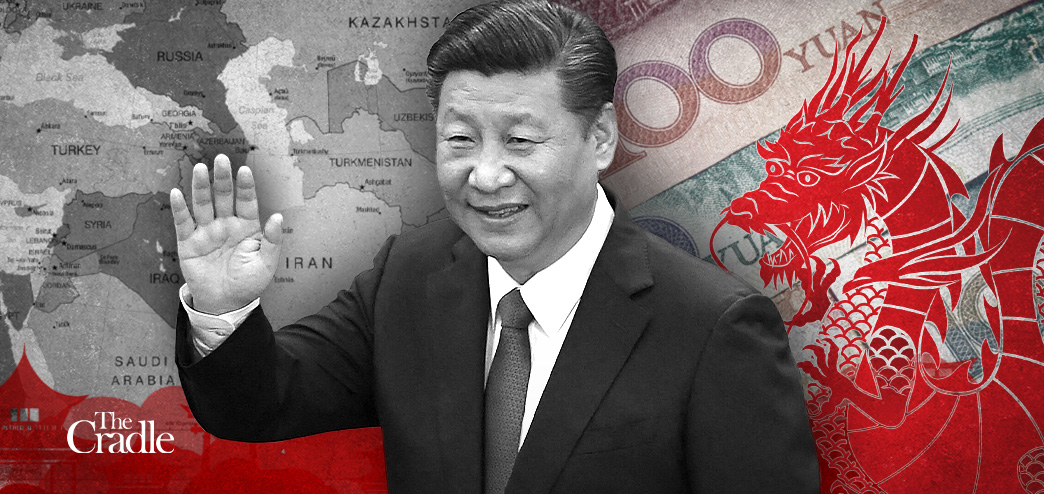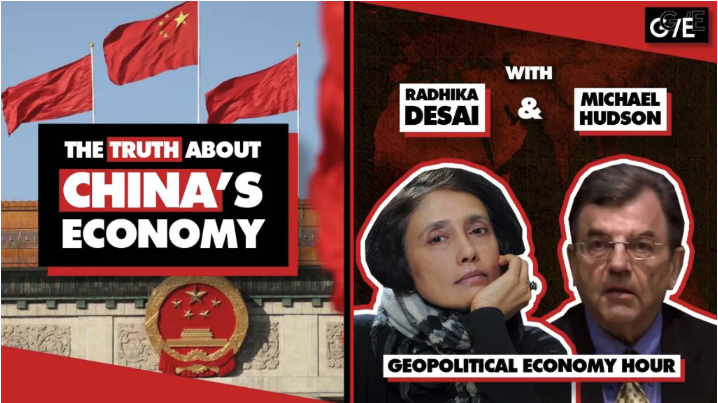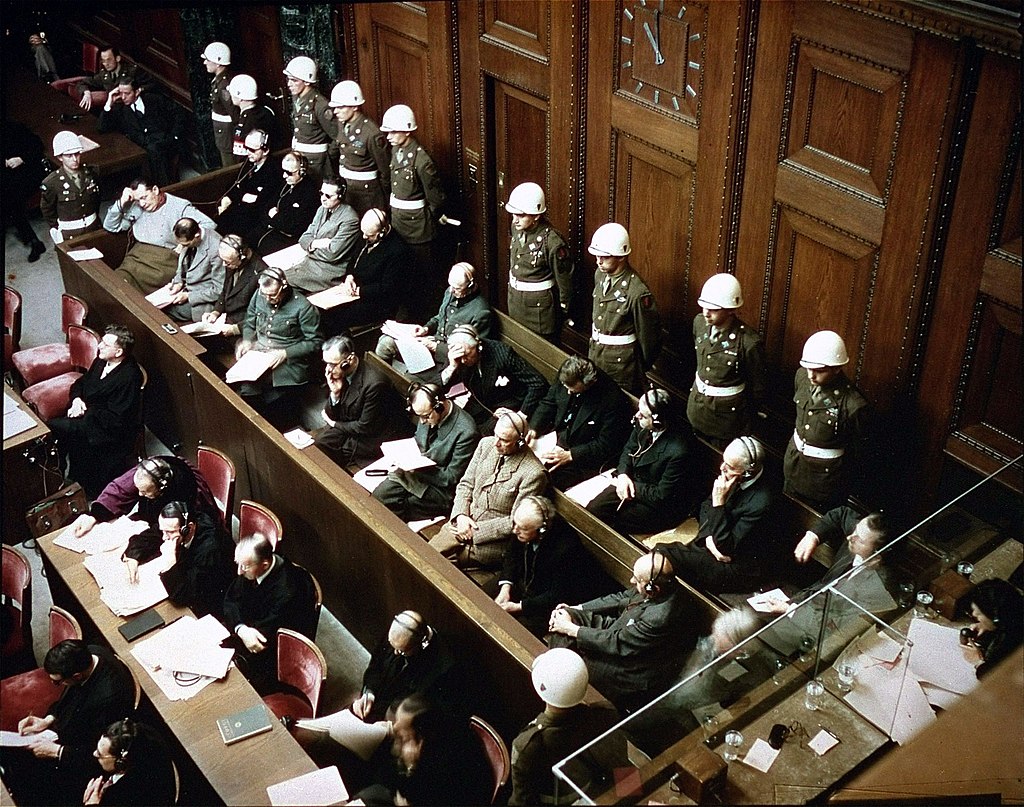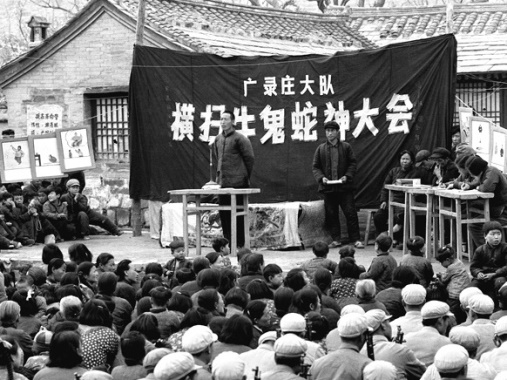Jeff J. Brown

|
EDITOR'S NOTE
F.W. Engdahl, a widely respected geopolitical analyst, recently wrote an essay offering a gloomy view of China's near economic future. Engdahl was forecasting something like a serious recession or even an economic implosion. Since many progressive people around the globe pin their hopes on China and Russia to build a peaceful, multipolar, and genuinely democratic order, one that would show conclusively the superiority of socialism over predatory neoliberalism, Engdahl's piece caused a great deal of confusion and consternation. Fortunately, our senior editor, Jeff J. Brown (who also happens to be the editor-in-chief of the China Rising blog, and also founder of the new Seek Truth From Fact Foundation) is a highly qualified expert on Chinese and Asian questions in general, and has written several books on the subject, also saw the Engdahl forecast and prepared a comment. Both views can be found below. It should be noted that alarms about the "real estate bubble collapse" have been around for a while. The US news program 60 Minutes (CBS) produced a segment, highly critical, of course, 10 years ago. (See appendix) While the debate may continue, we hope this page will help to clarify some of the urgent concerns expressed by some of our readers and associates. Meantime, our special thanks to our colleague Regis Tremblay, himself a veteran anti-imperialist/peace activist, for bringing this topic to our attention.
—PG
|
Why China Can’t Pull the World Out of a New Great Depression
By William Engdahl | First run on 16 May, 2023

Empty mall. Maybe the customers will come, maybe not, but the use value is always there.
Over the past two decades since China was admitted into the WTO, its national industrial base has made unprecedented strides to emerge as the world’s leading economic producer in many major areas. The academic debates over whether China’s GDP is larger than that of the USA are misplaced. GDP is largely worthless as a measure of a real economy. When measured in real physical economic production, China has left the USA and everyone else in the dust. Therefore, the future course of industrial production in China is vital to the future of the world economy. Globalization of the world economy made it so.
Steel production is still the single best indicator of a growing real economy. In 2021, China produced more that twelve times the tonnage steel as the USA, over one billion tons. The USA, once world leader, managed a piddly 86 million tons. In tons of coal, China produces some 50% of world total coal. She controls 70% of world rare earth mining and over 90% of its processing, thanks to bizarre US policy actions going back several decades. China today is far the world’s largest motor vehicle producer, almost three times the size of the US at 27 million units annually, one third of world total in 2022. China is by far the largest producer of the essential cement for construction, and is the world’s leading aluminum producer. At 40 million tons in 2022, this compares to not even one million tons in the USA. It is also the world’s largest copper consumer. The list goes on.
This is merely to suggest how essential the economy of China has been to world economic growth over the past two decades. A mere four decades ago China was insignificant in world real economic terms. So, if China goes into deep economic contraction, the effect this time will be global. And this is just what is now underway. Important to note, the contraction began well before the severe three-years of China’s zero covid lockdown. Simply put, China since the so-called Great Financial Crisis of 2008 managed to create a financial bubble the size of which the world has never before experienced. That bubble began to deflate, beginning in real estate, around 2019. The scale is systemic and is only beginning.
Colossal Deleveraging and Hidden Debt
A huge problem with China’s economic model over the past two decades has been the fact that it has been a debt-based finance model massively concentrated on real estate speculation beyond what the economy can digest.
Fully 25 to 30% of the total Chinese GDP is from real estate investment in homes, apartments, offices. That’s significant. The problem is that real estate, especially apartments in China, for more than two decades, appeared to be a guaranteed money maker for owners as well as builders and banks and above all, local government officials. Prices rose annually in the double digits, sometimes by 20%. Millions of middle-class Chinese bought not just one, but two or more apartments, using the second as investment for future retirement. China’s land is owned by the Communist Party, at the local level. It is leased long-term to construction firms who then borrow to build.
Here it gets murky. For CP local government officials, revenue from local real estate land leasing and their infrastructure projects is their major revenue source. Until now municipal property taxes are forbidden despite a huge pressure from local officials.
In the months of 2018 and 2019 China real estate prices peaked. Since then, they have been in a prolonged decline. China has a unique and very abuse-prone real estate model. Typically, a buyer must pre-pay the full purchase price when a developer has merely begun the construction. “Buy today as the price will be even more tomorrow” was the mantra. He takes a mortgage, usually from local banks, to do that. If the builder does not complete on time, the buyer must still pay their mortgage. Even if the developer goes bankrupt as is now happening, leaving abandoned unfinished housing behind. No other country uses that model. Typically, in Western countries a small deposit on a home to reserve until completion is enough. The mortgage comes when the property is finished. Not in China.
So long as China home prices were constantly rising, it seemingly worked and the home market expanded. When that price inflation stopped, for a variety of reasons, and exacerbated by the ultra-severe covid lockdowns, what was then a colossal real estate bubble began to implode. According to economist Robert Pettis at Beijing University, “Since the beginning of the property crisis in September and October 2021, property prices have declined in more than two-thirds of China’s seventy largest cities (and probably all of the smaller ones), while, more importantly, sales of new apartments this year (2022) have collapsed.” [1][i]
The major turn took place in 2021 with the default of China Evergrande Group on its dollar bonds. It was then the world’s most indebted real estate conglomerate with debts of well over $300 billion. In 2018 Evergrande was deemed, “the most valuable real estate group in the world,” according to Wikipedia. That was on paper. By time of default, it also owned theme parks, an EV auto company, resorts and enough land to house 10 million people. Until Beijing refused to bailout Evergrande, in a belated bid to cool the bubble, Chinese lenders had made loans based on the assumption that large borrowers would be bailed out—Too Big To Fail. Beijing learned all the wrong lessons from US banks after Lehman Bros.
It came out that Evergrande had created a colossal Ponzi fraud over the years. They were not unique. Following a speculative property boom after 2010, poorly-regulated local governments across China turned increasingly to real estate to boost income and fulfill the Beijing GDP growth targets, a de facto monetary version of Soviet central planning. Inflating local real estate values was a way of meeting local GDP targets. Local officials were given their share of annual GDP contribution to be met. Real estate became the ideal vehicle to meet GDP targets and generate local revenues. As long as prices were rising, banks and increasingly unregulated local “shadow banks” joined in the “win-win” bonanza. According to the South China Morning Post, by 2020 and the start of covid severe lockdowns, land sales and real estate taxes’ contribution to local government fiscal revenue reached a peak of 37.6 per cent. [1][ii]
The Evergrande partial default set off a panic in China real estate that officials desperately, and unsuccessfully, have tried to control. It was merely the first major casualty in what is a systemic meltdown. Beijing authorities imposed sharp limits on real estate lending in a vain attempt to contain the implosion, the so-called Three Red Lines. That made the implosion of the property bubble worse. In 2022 China new home sales plunged 22% over 2021. As of February 2023, China home prices had fallen for 16 straight months. Sales by the country’s top 100 developers last year were only 60% of 2021 levels. Land sales, which typically account for more than 40% of local government revenue, have collapsed. [1][iii]
Empty Houses and unemployment rising
Until the bubble began to burst in 2022 with the Evergrande default, Chinese real estate prices had risen several times higher, relative to household income, than in the USA. More alarming, two decades of rampant price inflation had created literal ghost cities and millions of empty apartments. As of 2021 an estimated 65 million apartments in China were empty, enough to house the French nation. [1][iv] This was a result of two decades or more of municipalities and developers building beyond actual demand, as citizens bought for investment, not living. One estimate is that between one-fifth and one-quarter of the total China housing stock, especially in more desirable cities, was owned by speculative buyers who had no intention of living in them or renting them out. In Chinese culture, a used apartment is considered unattractive.[1][v] With falling prices, these homes become unpayable.
The unprecedented 3-year covid lockdowns that ended abruptly last December did not help matters. Thousands of foreign manufacturers including Apple, Foxconn, Samsung and Sony, have begun to leave China for other locations in Asia or even Mexico, fueling a growing unemployment crisis which feeds the housing crisis in a self-feeding cycle.
As a result of this slow-motion implosion across China, for the first time since the great expansion unemployment is becoming very serious. This March, youth unemployment officially was over 20%. Millions of recent university graduates are unable to find work and Beijing has begun to send them to work in the rural countryside, reminiscent of the Mao era. This bodes ill for future home sales. A contracting bubble has a vicious dynamic.
Until about the time of the 2008 Beijing Olympics, real estate investment was largely productive. It filled a huge deficit in quality housing as a new middle class grew more affluent. After about 2010 that began to shift to bubble status as millions of middle-class and rich Chinese began to buy second and even third homes for pure speculation as prices were rising in double digits. The degree of central supervision of local government finances was loose.
Over recent years, to avoid central clampdown by Beijing authorities fearful of a new debt bubble imploding, local governments, often with hidden collusion from the giant state banks, created a non-bank economy, “shadow banks,” all off-balance sheet. As one result, despite actions by Beijing regulators to control the property meltdown and prevent contagion, total debt, public and private, in China by February 2023 according to Bloomberg reached an alarming 280% of GDP. [1][vi]
Commodity.com reports total state debt of China in 2023 is more than $9.4 trillion. But that excluded local government financing vehicles (LGFVs). Chinese local governments rely on off-balance sheet LGFVs to raise funds for local public construction—housing, high-speed rails, ports, airports. The debts of all these LGFVs are estimated to be roughly $27 trillion more. The official figure for total state debt also excluded debt of state banks and state companies, which is also clearly considerable, but unpublished. That total debt is also without the unknown size of local shadow banks which China’s National Institute of Finance and Development in 2018 estimated at some $6 trillion more. The result of all these omissions is a headline figure meant to reassure Western financial markets that China has manageable public and private debt. It doesn’t. All told, very roughly we can calculate a mammoth debt accumulation of well more than $42 trillion, a staggering sum for an economy which only three decades ago was at a level of an underdeveloped economy. [1][vii]
A major vehicle used to finance local budgets is unguaranteed and largely unregulated municipal investment bonds. Unlike traditional municipal debt in western countries, the Chinese local LGFVs are not able to use tax revenues to fund their bond interest or principal payments. So, local governments would tap into a growing housing market by leasing their long-term land to developers to fund their bond payments. This created a system where a sustained fall in housing construction, sales and prices now creates a systemic threat. This is now underway across China. In just two decades China has created the world’s second largest corporate debt market behind the USA, and far the most of that is in unregulated municipal bond debt.
As a result of this unique mixing of local governmental fiscal policies with local housing markets, a substantial drop in housing or land prices has greatly increased the risk level of local government default on its debts. In July 2022 Zunyi City in Guizhou defaulted on a major bond, leading to a collapse of the entire unregulated local bond market, as local bond issuance collapsed by 85% after that. The bonds were a way to refinance local debt and that channel now is all but closed, despite Beijing liquidity injections early 2023. Investors were mostly local ordinary Chinese seeking to earn on savings. This past April officials of Guiyang, also in Guizhou, told Beijing it was unable to finance its debts accumulated over a decade in construction projects including housing. [1][viii] This opens the next phase of debt implosion. Several China municipalities reportedly have been slashing wages, cutting transportation services and reducing fuel subsidies in a desperate bid to avoid default.
National Security redefined
Transparency of financial data has always been a problem in China. Thirty years ago the country had no developed financial markets. So long as the economy was expanding however, it was not a priority. Now it is, but too late.
A signal of how severe the situation is becoming, the Beijing authorities have begun to limit release of local and corporate financial data to foreign firms, calling it a “national security” issue.
This May, Dalian Wanda Group, another major Chinese real estate conglomerate with investments in US cinema chains, Australian real estate and beyond, revealed talks with its major bankers to restructure huge debts amid a liquidity crisis. The UK Financial Times on May 9 reported that hopes of a post-covid China recovery are vanishing: “Chinese iron ore prices dropped to their lowest levels in five months, as weak demand adds to evidence that the country’s economic rebound from tough coronavirus lockdowns may be faltering… the optimism and activity that followed the end of lockdown have waned, leading to a ‘collapse’ in the steel market.”
This all means the prospect of the Chinese economy being a growth locomotive to lift the rest of the world from looming depression is virtually nil at this point. The massive Belt and Road Initiative is mired in hundreds of billions of dollars in loans to countries unable to service the debt, as world interest rates rise and growth stalls. Attempts to boost domestic China growth by relying on a consumer boom are doomed presently for obvious reasons noted, as is the call by Xi Jinping to make 5G, AI and such technologies the basis of a new boom, as US sanctions greatly hamper China IT advances.
Endnotes:
[i] Michael Pettis, What’s in Store for China’s Mortgage Market?, August 12, 2022,
https://carnegieendowment.org/chinafinancialmarkets/87664
[ii] Luna Sun, China cracks down on ‘characteristic towns’ that misused land, real estate while racking up massive debt, 6 November, 2021, https://www.scmp.com/economy/china-economy/article/3155055/china-cracks-down-characteristic-towns-misused-land-real
[1][iii] Laura He, China s property crash is prompting banks to offer mortgages to 70 year olds, February 20, 2023 https://edition.cnn.com/2023/02/17/economy/china-mortgage-age-95-property-market-intl-hnk/index.html
[1][iv] Lina Batarags, China has at least 65 million empty homes — enough to house the population of France. It offers a glimpse into the country's massive housing-market problem, Business Insider, October 14, 2021,https://www.businessinsider.com/china-empty-homes-real-estate-evergrande-housing-market-problem-2021-10 .
[1][v] Michael Pettis, What Does Evergrande Meltdown Mean for China?, September, 20, 2021,https://carnegieendowment.org/chinafinancialmarkets/85391
[1][vi] Bloomberg, China’s Debt-to-GDP Ratio Rises to Record 279.7% on Credit Boom, 8 May, 2023,https://www.bloomberg.com/news/articles/2023-05-08/china-s-debt-to-gdp-ratio-rises-to-record-279-7-on-credit-boom#xj4y7vzkg
[1][vii] Commodity.com, China’s National Debt Clock: What’s the Current Figure (and What’s Included), May 12, 2023,
https://commodity.com/data/china/debt-clock/
[1][viii] The Economist, China’s local-debt crisis is about to get nasty, May 4, 2023,https://www.economist.com/finance-and-economics/2023/05/04/chinas-local-debt-crisis-is-about-to-get-nasty
ABOUT THE AUTHOR(s)
 Frederick William Engdahl (born August 9, 1944) is an American writer based in Germany. He identifies himself as an "economic researcher, historian and freelance journalist." Born in Minneapolis, Minnesota, United States, Engdahl is the son of F. William Engdahl Sr., and Ruth Aalund (b. Rishoff). Engdahl grew up in Texasand earned a degree in politics from Princeton University in 1966 (BA) followed by graduate study in comparative economics at the University of Stockholm from 1969 to 1970. He then worked as an economist and freelance journalist in New York and in Europe.
Frederick William Engdahl (born August 9, 1944) is an American writer based in Germany. He identifies himself as an "economic researcher, historian and freelance journalist." Born in Minneapolis, Minnesota, United States, Engdahl is the son of F. William Engdahl Sr., and Ruth Aalund (b. Rishoff). Engdahl grew up in Texasand earned a degree in politics from Princeton University in 1966 (BA) followed by graduate study in comparative economics at the University of Stockholm from 1969 to 1970. He then worked as an economist and freelance journalist in New York and in Europe.
 Commentary by Jeff J. Brown
Commentary by Jeff J. Brown
I actually subscribed to F. William Engdahl, so I had already seen this and read this article. He usually does really excellent work, but sometimes he really gets off down a rabbit hole. And this is definitely one. A deep rabbit hole. Unless you go to China and see China, and see how it works and see how the economy is working and experience it internally, and understand how the government works, how the real estate market works, how the banks work, how the insurance companies work, how the infrastructure [is set up, it's hard to understand what's really happening].
It's too easy for people like Engdahl to think that China is just like the United States or Europe, and it's not. The land is all people-owned. The banks are all people-owned. The insurance companies are all people-owned. Much of the large scale industry is all people-owned. So plus you have a much more honest, caring government that's actually trying to help the people instead of trying to kill it [or bamboozle it]. It's just also wrongheaded. China's debt is absolutely a fraction of what it is for the United States and Europe. And so that is a non issue. I cover this all the time. Evergrande. It's a blessing for the people of China that Evergrande went belly up. What's going to happen is China—Baba Beijing—my name for the chinese government... The leadership will move in. They will take it into receivership. They will strip out the useful assets that can be put into state owned companies, and the investors are going to get the shaft. And that includes overseas investors. And also know that's just the way it is. The thousands of people who had apartments that were not finished or whatever, Baba Beijing will make sure that those apartments are finished. They will find diligent partners to finish those apartments. They will keep the citizens whole, and the investors are going to take the hit, be they Chinese, which is most of them, or overseas. So that's the way it works.
I was just there in May for an entire month. I was there in most of the month of the end of September and most of October. And you just have to see it to believe it. And I don't think he's ever been there, and he's just wrong on so many accounts. And I don't have time to go through line by line, but I just want to give you this overview and to see that when you own the land, when you own the banks, when the people own the land, the banks, the insurance companies, the major industries, all the public infrastructure, and you have an honest, hardworking, Confucian government committed [the results are much different].
Mao Zedong served the people. Of course, there's some corruption and they're cleaning it up. They put millions of, they punished millions of people in the last ten years. Some have even been executed for high financial crimes. Thousands are in jail. So they are kicking ass and taking names. And you just spend one day walking around anywhere in China, and the place is humping, bumping, hopping, going, moving, producing. You can just feel the economic energy when you're in China. And it has got the fastest growing economy. Big economy. Well, maybe India might be a little bit bigger this year, but it's the biggest economy in the world in PPP terms, and I'm not worried about it at all. And I'm sorry that Engdahl published this.
(Jan. 30, 2024)
APPENDIX
(CBS News)
“He who is not angry when there is just cause for anger is immoral. Why? Because anger looks to the good of justice. And if you can live amid injustice without anger, you are immoral as well as unjust.”
— Thomas Aquinas
ABOUT JEFF BROWN
 Jeff J. Brown is a geopolitical analyst, journalist, lecturer and the author of The China Trilogy. It consists of 44 Days Backpacking in China - The Middle Kingdom in the 21st Century, with the United States, Europe and the Fate of the World in Its Looking Glass (2013); Punto Press released China Rising - Capitalist Roads, Socialist Destinations (2016); and for Badak Merah, Jeff authored China Is Communist, Dammit! – Dawn of the Red Dynasty (2017).
Jeff J. Brown is a geopolitical analyst, journalist, lecturer and the author of The China Trilogy. It consists of 44 Days Backpacking in China - The Middle Kingdom in the 21st Century, with the United States, Europe and the Fate of the World in Its Looking Glass (2013); Punto Press released China Rising - Capitalist Roads, Socialist Destinations (2016); and for Badak Merah, Jeff authored China Is Communist, Dammit! – Dawn of the Red Dynasty (2017).
Jeff can be reached at China Rising, jeff@brownlanglois.com, Facebook, Twitter and Wechat/Whatsapp: +86-13823544196.
• For Jeff J Brown’s Books, Radio Sinoland & social media outlets be sure to check this page on his special blog CHINA RISING RADIO SINOLAND
The battle against the Big Lie killing the world will not be won by you just reading this article. It will be won when you pass it on to at least 2 other people, requesting they do the same.
 If you find TGP or/and China Rising Radio Sinoland's work useful and appreciate their quality, please consider making a donation. Money is spent to pay for Internet costs, maintenance, the upgrade of our computer network, and development of the site.
If you find TGP or/and China Rising Radio Sinoland's work useful and appreciate their quality, please consider making a donation. Money is spent to pay for Internet costs, maintenance, the upgrade of our computer network, and development of the site.
 Just use the donation button below (yes, click on Sylvester the Kitty)—OR, just as easy, SCAN our QR code!
Just use the donation button below (yes, click on Sylvester the Kitty)—OR, just as easy, SCAN our QR code!



















